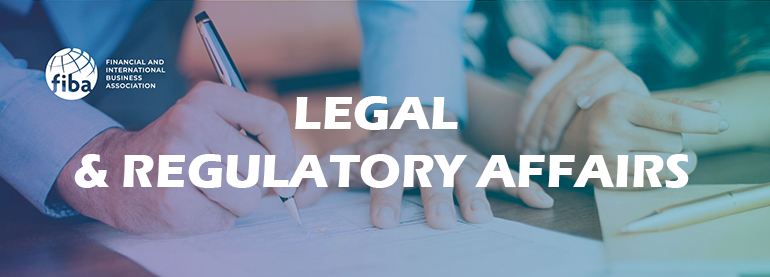Despite the stalled emergence from the COVID-19 pandemic, courts and regulatory authorities continue to shape and impact the way cross–border financial business is done. Recently, OFAC, the Department of Justice, a New York federal district court, and the Second Circuit Court of Appeals have published notices and decisions that we at FIBA/LARA[1] believe are instructive.
How binding is “Guidance”?
In September 2018, several regulatory authorities (Federal Reserve, FDIC, NCUA, and the OCC, or the “Joint Agencies”) joined together to clarify the role of supervisory guidance and to note the difference between it and law or regulation. They wrote in their Joint Agency Statement:
“Unlike law or regulation, supervisory guidance does not have the force and effect of law, and the agencies do not take enforcement acts based on supervisory guidance.”
While the 2018 joint statement was helpful to many financial institutions, the Department of Justice, through a memorandum by Attorney General Merrick Garland, has recently rescinded two prior policy memoranda similarly limiting the role of guidance and –potentially eroding the work of the Joint Agency Statement –have reinstated the use of agency guidance in DOJ civil enforcement actions against individuals and private businesses.
Earlier memos had mandated that DOJ attorneys would not rely solely upon such guidance documents to form the basis of affirmative civil enforcement actions. The new memo authorizes DOJ to make increased use of guidance in court cases. Now, in particular, “[t]o the extent guidance documents are relevant to claims or defenses in litigation, [DOJ] attorneys are free to cite or rely on such documents as appropriate”.
Can home-country proceedings impact collateral realization rights?
For many years, practical bankers have discounted the theoretical possibility of a home–country insolvency staying collateral liquidation in the US due to US bankruptcy Chapter 15 requiring the initiation and winning of a US ancillary proceeding to recognize a foreign stay order. Now, a recent New York federal district court proceeding erodes that analysis and opens the specter of foreign proceedings impeding US liquidation.
While it has been generally understood that recognition of a foreign bankruptcy proceeding under Chapter 15 is a prerequisite to a U.S. court enforcing an order or judgment entered in a foreign bankruptcy proceeding or a provision in foreign bankruptcy law applicable to a debtor in such a proceeding, a recent ruling by the U.S. District Court for the Southern District of New York directly challenges this principle, which has existed since Chapter 15 was enacted in 2005. In Moyal v. Munsterland Gruppe GmbH & Co., 2021 WL 1963899 (S.D.N.Y. May 17, 2021), the court dismissed litigation against a German company, finding that, under principles of comity, the lawsuit was stayed by operation of German law when the company filed for bankruptcy in Germany. The district court did so despite the absence of any order issued by a U.S. bankruptcy court recognizing the German bankruptcy proceeding under Chapter 15.
Due to the enactment of Chapter 15 in 2005, the requirements for seeking recognition and enforcement in the United States of foreign bankruptcy court orders or laws impacting a foreign debtor or its U.S. assets changed. These provisions reflected lawmakers’ intention that chapter 15 be the “exclusive door to ancillary assistance to foreign [restructuring or insolvency] proceedings,” with the goal of controlling such cases in a single court. Therefore, unlike practice before the enactment of chapter 15, the vast majority of courts have held that a foreign representative must comply with the requirements of Chapter 15 to obtain the various forms of relief or assistance contemplated by the chapter, including a stay or dismissal of U.S. court proceedings against a foreign debtor or its assets.
Moyal dismissed the litigation based upon principles of comity and applied the “procedural fairness” analysis commonly used by U.S. courts prior to the enactment of Chapter 15. The district court’s ruling in Moyal cuts against the grain on the question of whether Chapter 15 recognition is a prerequisite for relief from U.S. courts. The vast majority of courts considering the question have ruled to the contrary in keeping with the plain language and purpose of Chapter 15. While Moyal may yet prove to be wrongly decided, its potential impact remains noteworthy.
Do US judgments prohibit judgment debtors from home–country banking?
Often, US banking presence is seen by claimants’ lawyers as an effective substitute for home–country jurisdiction in asset recovery. While the legal separateness of home–country and US operations is generally respected, claimants’ attorneys still try. Recently, the Second Circuit rejected another attempt.
In Next Investments, LLC v. Bank of China, the Second Circuit denied sanctions against six Chinese banks that held assets of judgment-debtors at Chinese banks finding that there was “fair ground of doubt” as to whether the mere provision of routine account services at foreign branches to non-compliant judgment-debtors constituted “active concert or participation” with the debtors for purposes of restraining orders under Federal Rule of Civil Procedure 65(d)(2). The court also suggested that New York’s “separate entity rule” and considerations of international comity based on conflicting foreign laws may preclude asset restraining orders purporting to bind a bank’s foreign branches.
The dispute giving rise to the Second Circuit’s decision began with a trademark infringement suit filed by Nike in 2013 against several hundred Chinese retailers for selling counterfeit Nike products on the internet. To protect its interests, Nike served pre-judgment asset restraining orders on the New York branches of six Chinese banks that held the assets of the counterfeit sellers that purported to apply regardless of whether the judgment debtors’ “assets are held in the U.S. or abroad.” The banks objected to this potential extraterritorial application.
Although the Second Circuit declined to address whether a banks’ provision of “routine” banking services could ever constitute aiding and abetting violations of asset-restraint orders in general, the court’s refusal to find that such services by the banks, in this case, constituted “active concert or participation” with the judgment-debtors in contempt of asset restraints provides welcome relief for international banks with a U.S. presence.
Treasury ratchets up its cyber enforcement.
With cyber-crime and virtual currency drawing increasing attention from regulators as a National AML Priority, the Department of the Treasure has ramped up its efforts to counter ransomware and related cybercrime.
On September 21, the U.S. Department of the Treasury announced a set of actions focused on disrupting criminal networks and virtual currency exchanges responsible for laundering ransoms. In its first designation of a virtual currency exchange for being complicit in criminal financial services, Treasury’s actions include the OFAC designation of SUEX OTC, S.R.O. (SUEX), a virtual currency exchange, for its part in facilitating financial transactions for ransomware actors. SUEX facilitated transactions involving illicit proceeds from at least eight ransomware variants. Analysis of known SUEX transactions showed that over 40% of SUEX’s known transaction history was associated with illicit actors.
While most virtual currency activity is licit, virtual currencies can be used for illicit activity through peer-to-peer exchangers, mixers, and exchanges. This includes the facilitation of sanctions evasion, ransomware schemes, and other cybercrimes. Some virtual currency exchanges are exploited by malicious actors, but others, as was the case with SUEX, facilitate illicit activities for their own illicit gains.
We trust you find this ALERT useful. As always, we welcome your thoughts in addressing current topics and their impact on our industry.
Regards, FIBA Legal & Regulatory Affairs Committee
[1] FIBA’s Legal and Regulatory Affairs Committee is FIBA’s legal and regulatory advocacy and educational arm. It is co-chaired by Danny Gutierrez of Ocean Bank and Sergio Alvarez-Mena of Jones Day.

